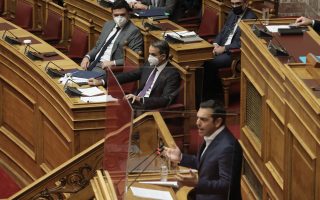The last king of the Hellenes

With the death of the last king of the Hellenes almost 50 years after the institution was scrapped by referendum, there are no excuses for the frivolity with which many participants in public life – on the left and the right – approach the question of the monarchy and its history, seeking political gains without effort. And even as we await the verdict of some hypothetical, all-knowing historians of the future to judge the former king and the role that he played in the few years in which he had influence, we show no similar interest in the timeless weaknesses of our political culture – those that make us vulnerable to catastrophe no matter what political system we have.
From the foundation of the Greek state, the monarchy highlighted pre-existing problems and played a leading role in maintaining and sometimes worsening them. The civil wars of the Greeks were what led to the introduction of absolute monarchy, interrupting the course towards a democratic polity under constitutional law. The monarchy played a leading role in division and in the shaping of a political culture in which central authority is undermined by internal division, by its own weakness, and by its lack of legitimacy in the eyes of many. Some sought gains through their relationship with power, while others were driven by the bitterness of those “left outside.” Anger, group interests, personal ambition and interference by foreign powers created a system dominated by division and shifting alliances of convenience. The former king’s involvement in the events of the 1960s highlight not only his own weaknesses and those of his advisers, but also of a political system unable to avert what was coming – dictatorship.
The mistakes of that time allowed the Greeks to revert to the path of the state envisioned by the participants of the first national conventions during the Greek Revolution. The gains that followed the end of the dictatorship and the referendum in which the monarchy was abolished were multiplied by the stability and prosperity of being part of the European Union. And yet, we see how easily we fall back into disputes and divisions which are not warranted by current events. So many years after the end of the monarchy, the handling of the last act of the drama still provokes tension and awkwardness. It is still driven by petty political motives instead of inspiring reflection and magnanimity.




